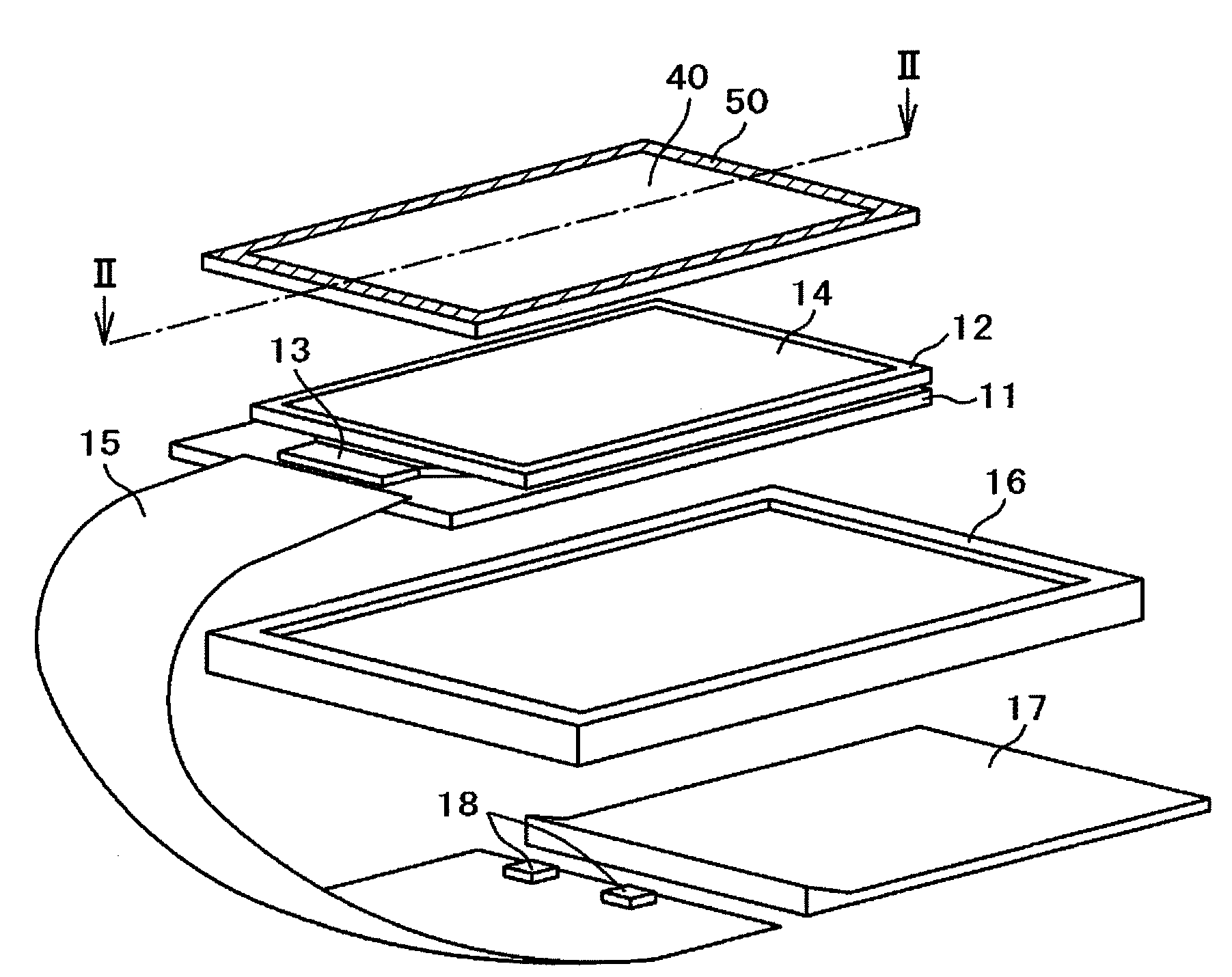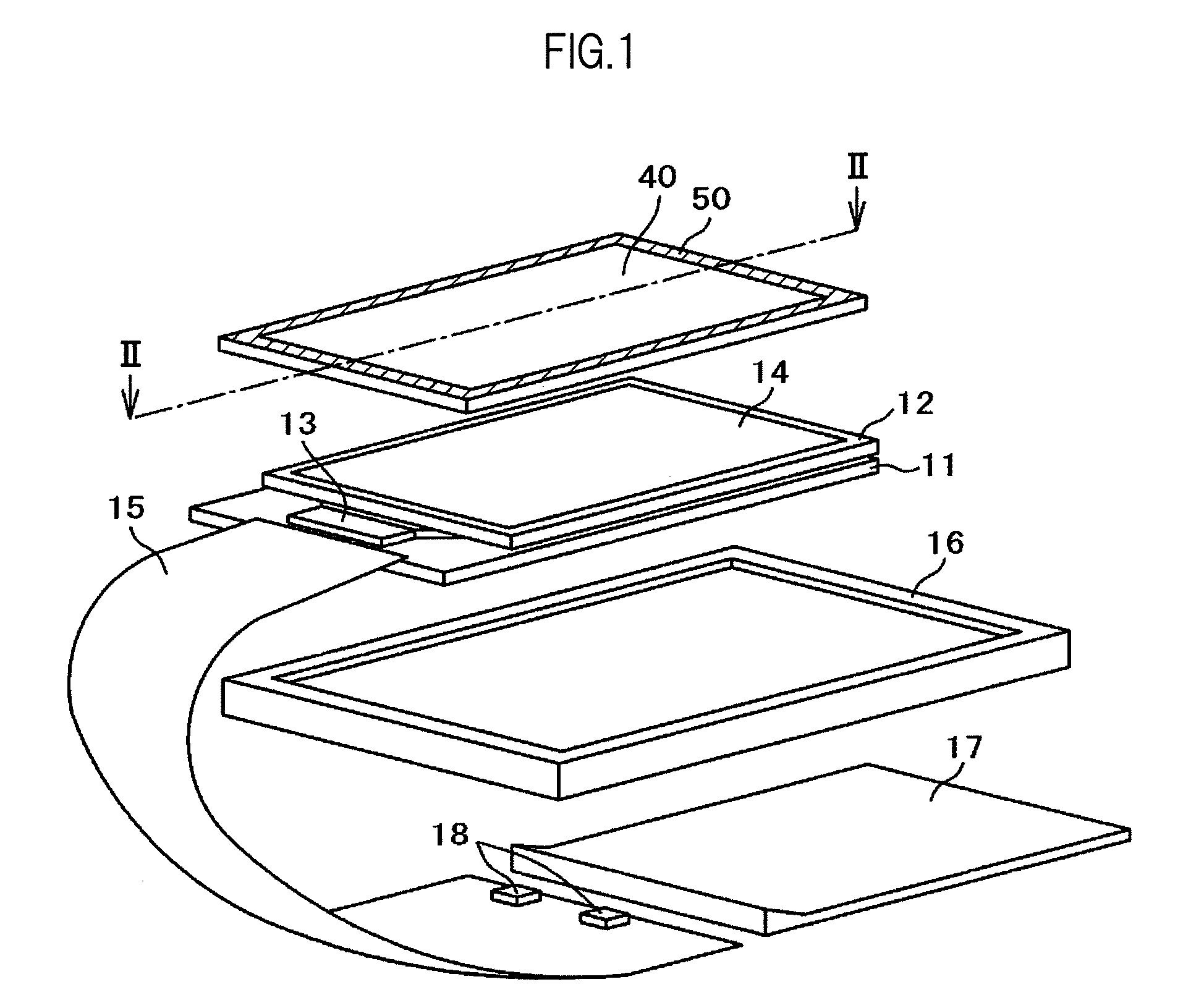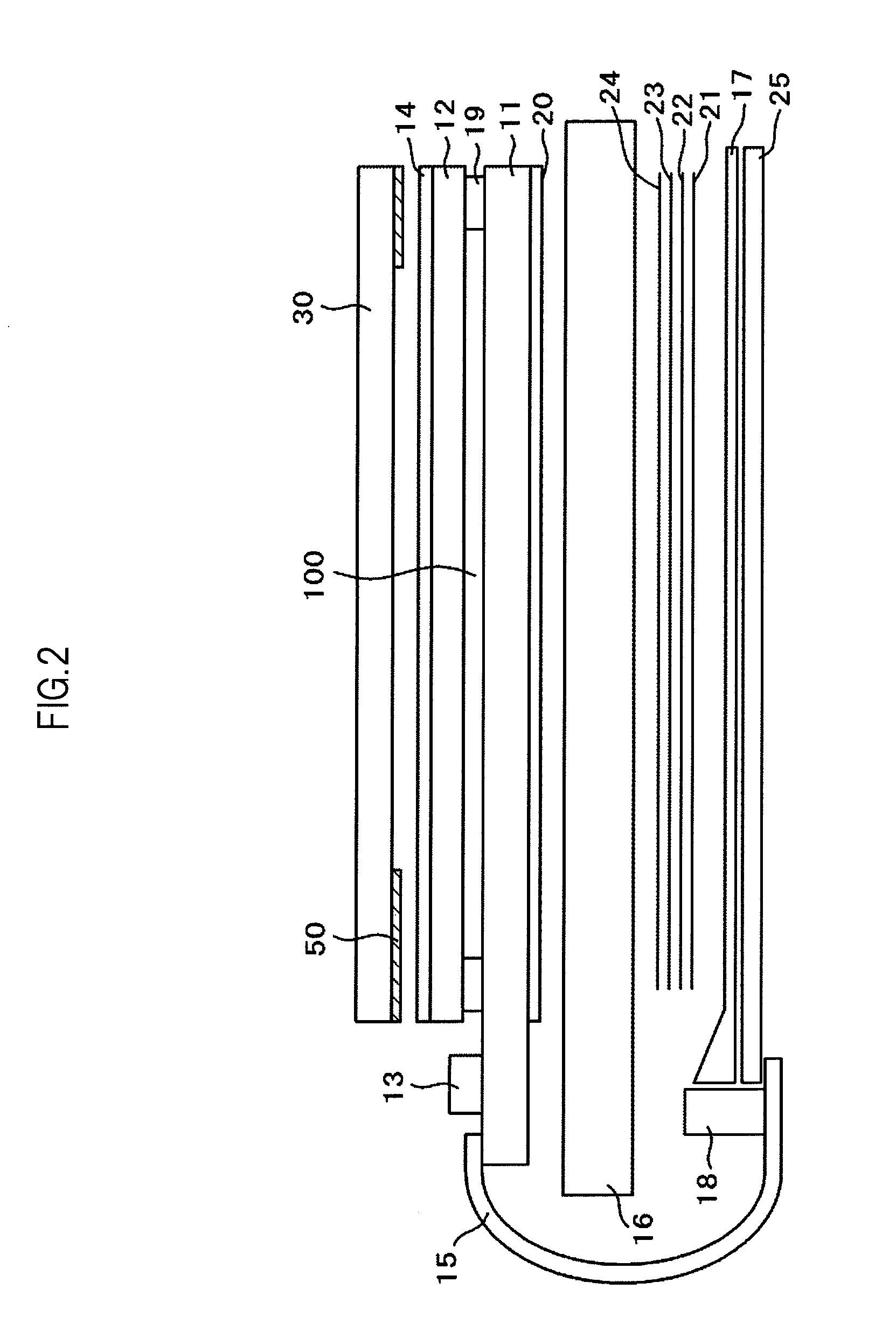Liquid crystal display device
a liquid crystal display and display panel technology, applied in the field of display devices, can solve the problems of reducing the thickness of the liquid crystal display panel, reducing the manufacturing yield rate, and difficult to acquire such standardized glass substrates from the market, so as to improve the design aesthetics and lessen the degradation of image quality
- Summary
- Abstract
- Description
- Claims
- Application Information
AI Technical Summary
Benefits of technology
Problems solved by technology
Method used
Image
Examples
first embodiment
[0046]FIG. 1 is an exploded perspective view illustrating a liquid crystal display device according to a first embodiment of the present invention. FIG. 2 is a sectional view taken along the line II-II of FIG. 1. In FIG. 1, a liquid crystal display panel is constituted of a TFT substrate 11 and a color filter substrate 12. Pixel electrodes are formed on the TFT substrate 11 in matrix. Thin film transistors (TFTs) for changing over a signal supplied to respective pixel electrodes are also formed on the TFT substrate 11. The color filter substrate 12 which has color filters formed thereon is arranged to face the TFT substrate 11 in an opposed manner.
[0047]Respective thicknesses of glass substrates used in the manufacture of the TFT substrate 11 and the color filter substrate 12 are set to 0.5 mm. After completion of manufacturing of the liquid crystal display panel by charging and sealing liquid crystal between the substrates, outer sides of the liquid crystal display panel are polish...
second embodiment
[0078]Sometimes air bubbles are trapped when the face plate 30 is bonded to the liquid crystal display panel, or the bonding fails in other respects, resulting in defective products. In such cases, the face plate 30 is peeled off of the liquid crystal display panel in order to salvage the face plate 30 and the liquid crystal display panel. To separate the liquid crystal display panel and the face plate 30 from each other, a thin, thread-like material is inserted between one of the two surfaces of the pressure-sensitive adhesive material 35 and a surface that is in contact with this surface. For example, the thin, thread-like material is inserted in a part A of FIG. 7.
[0079]The face plate 30 and the liquid crystal display panel after separated from each other are illustrated in FIGS. 8A and 8B. FIG. 8A illustrates the face plate 30 with the pressure-sensitive adhesive material peeled off, and FIG. 8B illustrates the upper polarizer 14 of the liquid crystal display panel with the pres...
third embodiment
[0096]FIG. 13 is a sectional view illustrating a third embodiment of the present invention. In FIG. 13, the frame 50 is formed from four printed layers. The thermal expansion of the face plate 30 causes stress in a part where the frame 50 is formed. One of the factors for this is a sharp change in thickness of the adhesive material 31 or the pressure-sensitive adhesive material 35.
[0097]In this embodiment, the stress on the pressure-sensitive adhesive material 35 is eased through a gradual change in thickness of the pressure-sensitive adhesive material 35 which is accomplished by shifting the position of the edge of the frame 50 each time a new layer is printed. The frame 50 of FIG. 13 has four layers, and the edge of any one of the printed layers is receded toward the outside compared to one layer below this layer. Specifically, the second layer is receded by R1 from the first layer, the third layer is receded by R2 from the second layer, and the fourth layer is receded by R3 from ...
PUM
| Property | Measurement | Unit |
|---|---|---|
| thickness | aaaaa | aaaaa |
| thicknesses | aaaaa | aaaaa |
| thickness | aaaaa | aaaaa |
Abstract
Description
Claims
Application Information
 Login to View More
Login to View More - R&D
- Intellectual Property
- Life Sciences
- Materials
- Tech Scout
- Unparalleled Data Quality
- Higher Quality Content
- 60% Fewer Hallucinations
Browse by: Latest US Patents, China's latest patents, Technical Efficacy Thesaurus, Application Domain, Technology Topic, Popular Technical Reports.
© 2025 PatSnap. All rights reserved.Legal|Privacy policy|Modern Slavery Act Transparency Statement|Sitemap|About US| Contact US: help@patsnap.com



